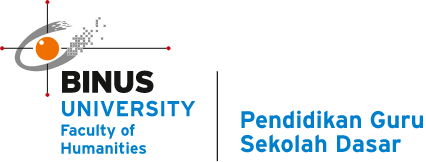Artificial Intelligence Will Never Replace The Human Touch of Our Classrooms
Artificial intelligence is such a technologically rich and new development in the world that I believe it will dictate how we think of future classrooms. It’s hard to know what the future may hold, but it seems today that teachers are embracing AI as a necessary step into the future of education.
What is artificial intelligence?
There is no single definition of artificial intelligence (AI), but it can be generally described as a branch of computer science that deals with the design and development of intelligent computer systems. AI research deals with the question of how to create computers that are capable of intelligent behaviour.
In practical terms, AI applications can be deployed in a number of ways, including:
1. Machine learning: This is a method of teaching computers to learn from data, without being explicitly programmed.
2. Natural language processing: This involves teaching computers to understand human language and respond in a way that is natural for humans.
3. Robotics: This involves the use of robots to carry out tasks that would otherwise be difficult or impossible for humans to do.
4. Predictive analytics: This is a method of using data mining, machine learning and statistical techniques to make predictions about future events.
What are the benefits of artificial intelligence?
There are many potential benefits of artificial intelligence (AI) in education. AI could be used to personalize learning for each student, providing customized content and recommendations based on their individual needs and interests. AI could also be used to create engaging and interactive learning experiences, such as virtual reality simulations or digital tutors that provide real-time feedback. Additionally, AI could be used to help automate administrative tasks such as grading and tracking attendance.
AI has the potential to transform education by making it more accessible, personalized, and effective. However, it is important to note that AI will never completely replace human teachers. Teachers play an essential role in providing emotional support and guidance for students. They also serve as important role models and mentors. While AI can provide some of the same benefits as human teachers, it will never be able to replace the vital role that human teachers play in education.
What are the disadvantages of artificial intelligence?
There are several disadvantages of artificial intelligence that could prevent it from ever replacing human teachers. First, AI is not good at understanding or responding to emotions. This could be a problem when dealing with students, who may need emotional support in addition to academic help. Additionally, AI is not creative and would likely not be able to come up with new ways to teach or engage students the way humans can. Finally, AI relies on large amounts of data to function properly, which means that if there are errors in the data, the AI could make incorrect decisions.
Why artificial intelligence will never replace human teachers?
There are many reasons why artificial intelligence will never replace human teachers. For one, AI lacks the ability to truly understand human emotions and experiences. This means that AI would not be able to effectively teach or connect with students on a personal level in the way that human teachers can. Additionally, AI is not yet capable of making the same type of inferences and deductions that humans can when it comes to teaching. Human teachers are able to adapt their lessons and style on the fly based on the needs of their students, something that AI cannot do. Finally, human teachers provide an important role model for students both in terms of academic achievement and personal behavior. AI simply cannot replicate this.
How can artificial intelligence be used to supplement human teachers?
Artificial intelligence has the potential to serve as a powerful supplement to human teachers. When used in combination with traditional teaching methods, AI can help teachers to more effectively personalize instruction, identify and address areas of need, and provide real-time feedback.
One way that AI can be used to supplement human teaching is by providing real-time feedback on student performance. This can be especially helpful in cases where students are struggling and need extra support. For example, if a student is consistently getting low scores on quizzes, the AI system can alert the teacher so that they can provide additional help.
Another way that AI can be used to supplement human teaching is by helping to identify areas of need. For example, if a particular concept is giving students trouble, the AI system can analyze data to identify which students are struggling and why. This information can then be used to adapt the lesson plan or provide additional resources.
Personalized instruction is another area where AI can be used to supplement human teaching. By tracking student progress and understanding individual learning styles, AI systems can offer recommendations for how best to tailor instruction for each student. This can help ensure that all students have access to an education that meets their unique needs.
Overall, artificial intelligence has the potential to serve as a powerful tool for teachers. When used correctly, it can help teachers save time, better cater to individual needs, and provide useful feedback about student progress.
Conclusion
While artificial intelligence is making great strides in many industries, there are some things that machines will never be able to replace. Human teachers, for example, play an irreplaceable role in education. They can provide students with the one-on-one attention that is essential for learning, and they can inspire students to reach their full potential. In a world where technology is constantly changing, human teachers will always be an important part of education.


